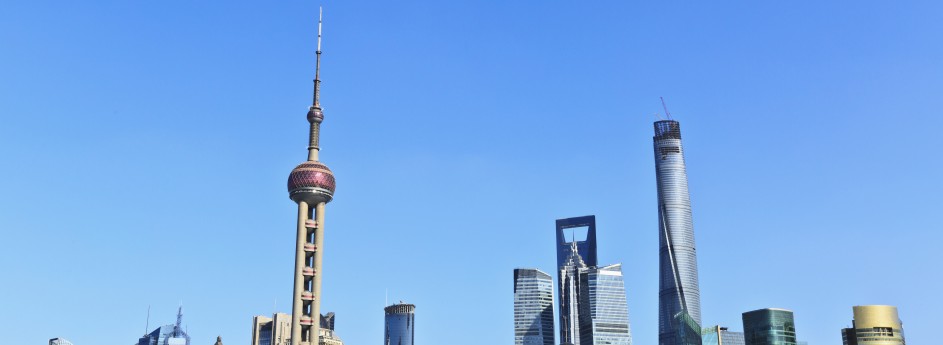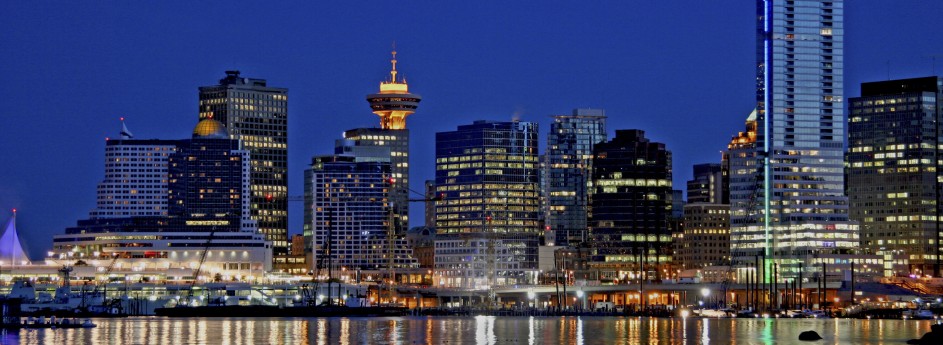Canada China Sign Pact to Extradite Criminals’ Ill-Gotten Gains
A couple months back, I posted urging the Canadian government to sign an extradition treaty with China on the heels of the Australian authorities agreeing to extradite seized assets of corrupt Chinese officials. Now, the Canadian government has followed suit but the Canadian Ambassador to China Guy Saint-Jacques was emphatic to the China Daily that Canada had no plans to sign a treaty. Although again slow off the blocks, Canada at least has agreed to do this. Now, the pressure is on laggard US to ink a deal but I’m not holding my breath.
———-
Canada is set to sign a deal with China to return ill-gotten assets seized from those suspected of economic crimes, the official China Daily reported on Monday, as Beijing works to track down corrupt officials who have fled overseas.
The world’s second-largest economy has vowed to pursue beyond its borders a search, dubbed Operation “Fox Hunt”, for corrupt officials and business executives, and their assets.
With the deal Canada, one of the top two destinations for suspected economic fugitives from China, becomes the third nation to agree to help Beijing bring such offenders to book, following offers this year from France and Australia.
The pact will cover “the return of property related to people who would have fled to Canada and would have been involved in corrupt activities”, Canada’s ambassador to China, Guy Saint-Jacques, told the China Daily in an interview.
“No country should become a haven for the corrupt to seek refuge from the law,” Chinese Foreign Ministry spokesman Qin Gang told a daily news briefing but gave no details of the pact.
China has extradition pacts with 39 countries but not the United States or Canada, the two places suspected economic fugitives are most likely to go, the Foreign Ministry says.
This month, France said it was ready to help track down people suspected of corruption who may be on French soil. In October, Australian police agreed to assist in the extradition and seizure of assets of corrupt Chinese officials, media said.
China this month asked the U.S. to help it track down more than 100 people suspected of corruption. At least 428 Chinese suspects were captured abroad by the end of October under the “Fox Hunt” campaign, state media reported.
– Reuters
Takeaways From the ‘Occupy Central’ Fiasco
Here are 10 calmly reasoned lessons from the Hong Kong ‘Occupy Central’ protests offered by Han Zhu, a senior fellow at the Shanghai-based Chunqiu Institute for Development and Strategic Studies. I would add a couple more, themes that I have elaborated on in past posts: political protest cannot mask economic resentment of mainlanders; Hong Kong political reform cannot be pursued in isolation from the mainland.
1. Beijing will not budge under pressure.
2. Hong Kong citizens reject illegal actions.
3. Pursuit of democracy by undemocratic means won’t work.
4. Street politics lead to anarchism.
5. Street politics divide society.
6. Democracy can only be built incrementally.
7. Political turbulence hurts the economy.
8. Poverty and inequality must be tackled.
9. Fat cats are getting too fat.
10. Cooperation is the only way forward.
The full article can be seen at: http://www.huffingtonpost.com/han-zhu/10-lessons-from-hong-kong-protests_b_6316096.html?utm_hp_ref=world
China Offers Iraq Help in Fighting ISIS
If this FT report is accurate, it means China is stepping up its involvement in the Middle East, albeit not with boots on the ground but through intelligence support and logistics. China’s growing investments throughout the region requires greater engagement in the form of advisors, personal training, and the supply of certain arms and munitions. The only exception to China’s reluctance to send troops abroad is dispatching peacekeeping soldiers to troubled regions such as Lebanon and Mali and personnel for anti-land mine operations as well as building roads and the such or escorting ships off the coast of Africa to fend off pirates under UN mandate.
In any case, due to its long standing principle of non-interference, China is hard pressed to get involved in any foreign-led expeditionary force, even at the invitation of the host country. So, contrary to active Western imaginations and wishful-thinking, you won’t be seeing the Liaoning aircraft carrier sailing to the Persian Gulf and J-15 carrying out sorties into Iraq or Syria any time soon.
—
China has offered to help Iraq defeat Sunni extremists with support for air strikes, according to Ibrahim Jafari, Iraq’s foreign minister.
Wang Yi, Mr Jafari’s Chinese counterpart, made the offer to help defeat the Islamic State of Iraq and the Levant, known as Isis, when the two men met in New York at September’s UN antiterrorism meeting, Mr Jafari said.
Any Chinese assistance would be outside the US-led coalition. “[Mr Wang] said, our policy does not allow us to get involved in the international coalition,” Mr Jafari told the Financial Times in Tehran, where he was attending an anti-extremism conference this week.
“I welcomed this initiative. I told him . . . we are ready to deal with the coalition and also co-operate with countries outside this coalition.”
China’s official policy is of non-interference in other countries’ internal affairs. Although it does sell weapons to many other countries, China has avoided direct military involvement beyond its borders.
Growing economic and strategic interests have tested that policy. China’s navy began escorting ship convoys around the Horn of Africa after Somali piracy threatened oil and ore cargoes. Last year for the first time it contributed troops to a UN peacekeeping operation in Mali. A battalion of 700 Chinese troops is now joining UN Peacekeepers in South Sudan, with a mandate to guard Chinese-invested oilfields there.
Isis has taken swaths of Iraqi territory since June. The US has led the air strikes on the Islamist group’s positions in Iraq and parts of Syria over the past four months. Pentagon claims that Iran launched separate air strikes last month have not been confirmed.
China’s defence ministry declined to comment on Mr Jafari’s remarks. Hong Lei, a foreign ministry spokesman, would not comment on whether China was supplying air support or missiles. In their meeting, Mr Wang had told Mr Jafari China backed Iraq’s efforts to strengthen its anti-terror capacity, including intelligence exchange and personnel training, Mr Hong said.
“China has been fighting terrorism and has been providing support and assistance to Iraq, including the Kurdish region, in our own way, and we will continue to do so within the best of our capabilities,” Mr Hong said.
China is the largest foreign investor in Iraq’s oil sector and stands to lose the billions its state-owned groups have ploughed into the country if the fields are lost to the insurgents. Sinopec operates in Kurdistan, while China National Petroleum Corp has interests in the Rumaila field near Basra and in Maysan province near the Iranian border. CNPC has already in effect abandoned oilfields it operated in Syria.
Global Times, the Chinese newspaper, reported this week that Isis crews were dismantling equipment at a small refinery west of Baiji in which a Chinese company has invested for use at refineries the group controls in Mosul, Iraq’s second-biggest city.



